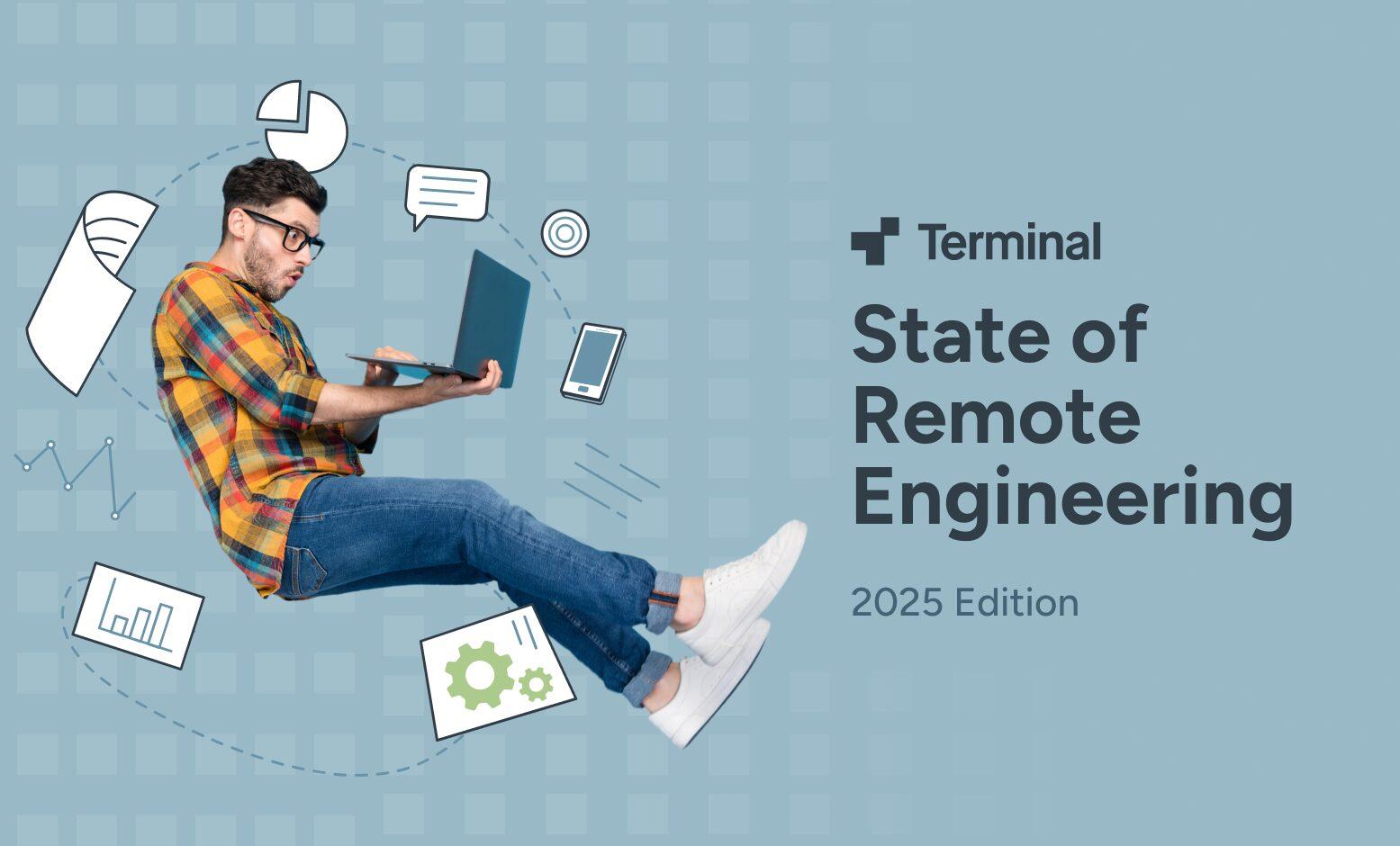
Hiring + recruiting | Blog Post
Technical Interview Questions for Hiring Managers to Ask
Wes Mitchell-Lewis
Share this post
The key to success in software development is in the details. Whether it’s catching a subtle bug or understanding the nuances of a complex algorithm, paying attention to the small things can make all the difference. This is also true when it comes to interviewing software developers. By asking the right technical interview questions, a hiring manager can better understand a candidate’s abilities and potential fit for the position.
However, simply asking generic job interview questions about a candidate’s experience isn’t enough. To really get to know a software developer, a hiring manager should start by asking technical questions specific to the company’s needs—only by delving into the specifics can they hope to find the right candidate for the job.
Furthermore, prepared questions are important not just for the sake of getting the right information but also for building rapport with the candidate. A hiring manager can create a more positive impression and set the stage for a productive conversation by showing that they have taken the time to learn about the company. Let’s analyze a few software engineer interview questions that are key to a successful first impression.
What is your experience with coding languages?
The first and maybe most obvious software engineer technical interview questions seek to decipher a programmer’s coding language knowledge as it is essential for creating and testing applications on multiple platforms. To evaluate a software engineer’s fit with their current and future code base and projects, companies will need to know what languages they have experience with.
What platforms are you comfortable working with?
Though simple at first glance, this inquiry is not always easy to resolve. Because there is such a large range of available platforms, each with its peculiar capabilities and features, it can be quite difficult to answer.
You may ask candidates to outline their approach to tackling a particular problem rather than just inquiring about their familiarity with a certain platform. The other option is to present a hypothetical situation and have them explain their reasoning.
What makes your solution better than other potential solutions?
This is a great topic to ask to test candidates’ analytical abilities. The software engineer’s ability to evaluate and contrast potential solutions, identify the benefits and drawbacks of each alternative, and present a compelling argument for why their solution is the best choice is essential for providing a satisfactory response to this question.
To that end, these types of interviewer questions are intended to assess the engineer’s technical understanding and capacity to think creatively and solve problems.
How do you test your code to ensure that it works correctly?
As testing is an fundamental component of the software development process, this is a crucial question when interviewing software developers. Engineers should guarantee their software is up to snuff and in line with client expectations by running tests on the code they’ve written. Performing tests on code can take various forms, each with its benefits and drawbacks.
What edge cases does your code account for?
An integral component of developing software is thinking through hypothetical situations. An edge case is an extreme scenario that is not typical of the system’s operation. Writing code to handle edge circumstances is crucial, even if the developer finds them challenging to predict.
Not doing so can lead to unexpected problems and actions. Through similar in-depth questions to ask interviewees, you can learn a lot about a candidate’s degree of experience and ability to think critically about their code by asking them about edge cases during the interview.
How well do you know the existing code base, and how did you go about learning it?
This will be one of the most detailed interview questions to ask candidates. Still, this inquiry is crucial as it reveals information about the candidate’s technical abilities and potential to integrate with the existing code base.
The prospective developer’s knowledge of the current code base is necessary for a successful response to this question—it is achieved by describing the steps they took to learn the code and talking about the parts of the code they’ve already mastered. The applicant should also be able to articulate how they would use their understanding of the code base to address particular issues.
How do you collaborate with other technical team members on the same project?
Collaboration is necessary for the industry of software development engineering—to keep up with the latest developments in their field, engineers must be able to collaborate effectively. Furthermore, many engineering projects are too complicated for a single individual to handle, deeming it crucial to screen for teamwork skills when hiring new personnel.
What is your experience with version control systems?
A candidate’s familiarity with version control systems should be a primary focus when hiring software developers. It is difficult to oversee large, complex projects without using a version control system, which aids engineers in tracking the history of code modifications.
Good interview questions such as these will reveal a lot about a candidate’s approach to development and their processes—by inquiring about their past work with version control systems. As a bonus, this question can zero in on any knowledge gaps that applicants may have.
What is your experience with automated testing tools?
A software engineer’s arsenal isn’t complete without automated testing tools. They aid in reducing testing time, identifying bugs before they cause major issues, and enhancing code quality.
With this question, you can assess their qualifications for the job and determine whether or not they are a good fit. Don’t forget to inquire about the candidate’s experience with, and opinion of, automated testing and any related technologies—you may also be able to assess the candidate’s fit with your team and learn more about their experience and expertise.
What is your experience with debugging tools?
Software engineers rely heavily on debugging tools to find and fix bugs in their code. Engineers save time, resources, and avoid costly mistakes using these technologies. Furthermore, debugging tools can aid in enhancing product quality by locating and fixing bugs before product delivery— the reason why it’s so crucial to inquire during an interview.
Software engineer technical interview questions you need to ask
It’s no secret that the software development industry is continuously evolving. As new technology and processes emerge, it can be hard for companies to stay up with the current trends. As a result, merely asking typical job interview questions about a candidate’s experience isn’t adequate. Start by asking these questions to gauge the recruit better sitting across from you.
Not only will this help to ensure that the prospect is a good fit for the organization, but it will also give the hiring manager a chance to evaluate how the candidate thinks on their feet. After all, when it comes to software development, being able to think creatively and solve problems fast is vital. So, if you’re trying to recruit a software developer, ask these technical interview questions relevant to your company’s demands.
For any non-technical interview questions, check out our Definitive List of Remote Developer Interview Questions here.
We hope you were able to learn today! Keep exploring the rest of Terminal’s content offerings and if you are interested in learning more about how we can help you accomplish your growth goals, please


